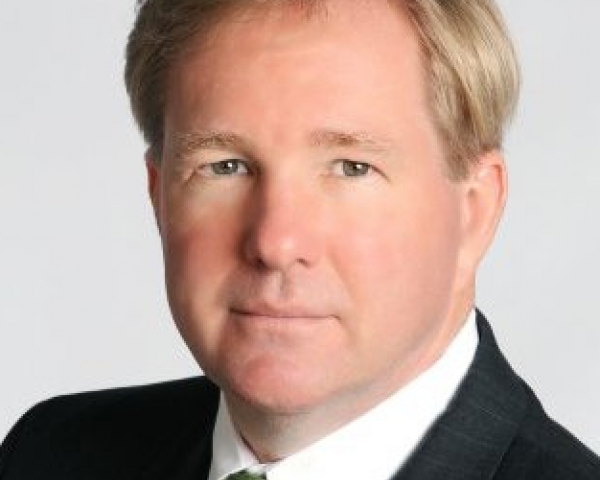While there has been a lot written over the years regarding the “brain drain” in the insurance industry, I think the industry as a whole has done a fairly good job of educating the next generation (no, this is not an article about millennials).
The problem our industry now faces is even more insidious, as it is very apparent to me that we are losing sight of long-standing business relationships and, most importantly, the standards that all insurance professionals are required to apply in everyday practice. This is true for all insurance professionals, including agents, brokers, adjusters, underwriters, middle management and senior executives.
It used to be that insurance companies always stood behind their agents (remember the phrase “agency accommodation”?). But I have been dismayed over the last number of years by a growing “us versus them” mentality in the agent-insurer relationship. I have seen many overzealous adjusters denying claims based on what they say is a late report and attempting to blame the agent for not promptly reporting the claim, while the agent was merely trying to balance the interests of the client and the insurer. I have also seen clerical errors resulting in coverage denials; rather than doing the right thing, the insurer took a scorched-earth approach and hung the agent out to dry. That never used to happen.
See also: The Insurer of the Future – Part 12
I worry that civility in our industry is disappearing. It may be that a younger, less experienced, yet more aggressive work force is the cause. But I hope we can return to the days when we were “all in this together,” when the overriding consideration was the welfare of the insured/client.
These are industry standards that all of you reading this have heard many times, include:
- Coverage should be evaluated with an eye toward providing coverage, not in an effort to exclude coverage
- The insurer must prove that an exclusion applies, to exclude coverage for a claim
- The insured should be given the benefit of the doubt when there is an ambiguity in the policy
- Any undefined term in an insurance policy should be given broad meaning (as long as it does not lead to an absurd result) in an effort to provide coverage, not a narrow interpretation to preclude coverage (“read in, read out”)
- All coverage available to an insured must be disclosed and the claim process clearly explained
All too often, overzealous adjusters attemp to manufacture claim denials. When I ask which particular policy provision they feel excludes coverage, I am many times met with the mantra: “We have sought a coverage opinion, and our attorneys feel the claim is not covered.” When asked to reconsider, their silence is deafening. When there is a response, all too often the response reflects that no real consideration was given to the request.
We need to keep in mind that attorneys are trained to be “zealous advocates for clients” (here, the insurance company), and they therefore take an entirely different approach to coverage interpretation than that required of an insurance adjuster, which is to try to find a way to cover the claim. Therefore, adjusters need to make coverage counsel understand that the adjuster is actually looking to provide coverage, not looking to deny the claim. How many times do you think an adjuster has had that conversation with coverage counsel?
Even when asking simple questions regarding pending claims, I am confronted by the adjuster, and sometimes the adjuster’s superior, as if I am the enemy and have no business asking questions about my client’s claim. At times, I have even been accused of crossing some non-existent line that somehow prevents me from trying to assist my client, even receiving a cease-and-desist letter on one such occasion. This is just the opposite of what should happen.
We as agents have an obligation to our clients to advocate for their best interests. Likewise, the insurer has collected premium in exchange for a “promise to pay” because “in buying insurance an insured usually does not seek to realize a commercial advantage but, instead, seeks protection and security from economic catastrophe.” We are all in this together, and we should be working to explore ways to find coverage or resolve the claim with the best possible outcome. Likewise, we as agents are the insurance company’s sales force, and they should stand behind us. What has happened to our industry?
Not to be completely gloom and doom: There are many very capable, well-trained and right-minded insurance adjusters out there. In fact, my interaction with one such adjuster at Travelers (to give credit where credit is due) this past week is what really prompted me to write this article. He and I have been working together in an attempt to find coverage for one of my clients' claims. That is the way it is supposed to be. While we may or may not succeed, the experience has been invigorating and given me hope.
See also: Innovation: ‘Where Do We Start?’
I also know that there are very few (if any) insurance company executives who give standing orders that their adjusters should look to deny claims. Most executives will attempt to do the right thing if a contested claim is brought to their attention. I’m sure most would be appalled at the way some claims are handled by overzealous adjusters, if they ever became aware of what was really going on.
I guess what I am trying to say through all of this is that we need to work as a team, and our overriding concern should be for the welfare of our client/insured. We need to recite our industry standards often, and they should be every adjuster’s mantra. Middle management needs to be our watchdog and make sure the adjusters working for them apply these standards to every claim. Senior management needs to ensure these standards are supported from the top down and should be available and visible should things go south.
Here’s to a kinder gentler agent-insurer relationship in the years ahead.







